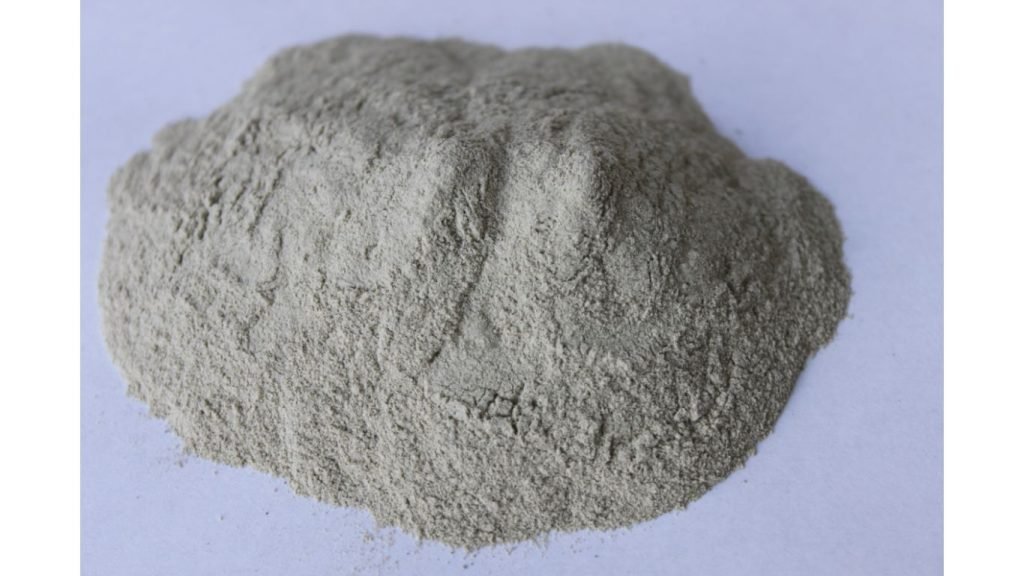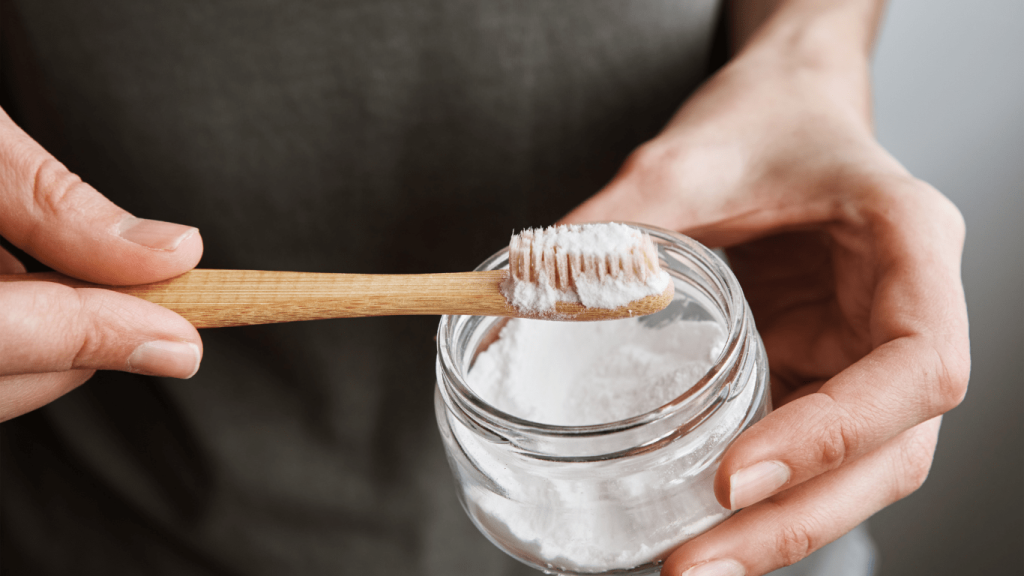Bentonite clay for teeth is a natural remedy used for centuries to treat various ailments. It is a type of clay derived from volcanic ash known for its detoxifying and cleansing properties. In recent years, bentonite clay has gained popularity as a natural teeth-whitening agent and oral health supplement.
Definition of Bentonite Clay:
It is a type of clay that is formed from the alteration of volcanic ash. It is composed of minerals such as montmorillonite, giving it unique properties. Bentonite clay is known for its ability to absorb toxins and impurities from the body, making it a popular natural remedy for various health conditions.
History of Bentonite Clay Use:
It has been used for centuries by indigenous cultures for its medicinal properties. The ancient Egyptians used it to preserve mummies. In contrast, Native Americans used it to treat wounds and as a digestive aid. Today, bentonite clay is widely used in the beauty industry and as a natural supplement for oral health.
Why Use Bentonite Clay for Teeth?
It is a safe and natural alternative to traditional teeth whitening products that can harm teeth and gums. It is also an effective way to detoxify the mouth and restore minerals to teeth, promoting oral health.

Overview of the Benefits of Bentonite Clay:
This has many benefits for oral health, including whitening teeth, reducing sensitivity, fighting bad breath, promoting gum health, preventing tooth decay, healing mouth sores, and relieving toothaches. It is also a natural supplement that is safe and free from harmful chemicals in traditional oral health products.
What is Bentonite Clay?
Bentonite clay is a type of clay that is formed from the alteration of volcanic ash. It is named after Fort Benton, Wyoming, where it was first discovered. It is composed of minerals such as montmorillonite, which is responsible for its unique properties. Montmorillonite is a swelling clay that expands when it comes into contact with water, forming a gel-like substance.
It has a high negative charge, which makes it an effective natural detoxifier. The negative charge attracts positively charged toxins and impurities, binding them to the clay and removing them from the body.
Bentonite clay is available in various forms, including powder, liquid, and capsules. It is commonly used for its medicinal properties, including digestive, skin, and oral health.
How Bentonite Clay is Formed:
It is formed from the alteration of volcanic ash. When exposed to water, volcanic ash becomes hydrated and creates a type of clay called smectite. Smectite is the main component of bentonite clay and is responsible for its unique properties.
Types of Bentonite Clay:
There are two main types of bentonite clay: sodium bentonite and calcium bentonite. Sodium bentonite is a type of clay commonly used for industrial purposes, such as drilling mud and cement. Calcium bentonite is a type of clay widely used for medicinal purposes, including oral health.
Chemical Composition of Bentonite Clay:
It comprises various minerals, including montmorillonite, silica, magnesium, calcium, iron, and potassium. The chemical composition of bentonite clay varies depending on its mined location. The high mineral content of bentonite clay is responsible for its unique properties and health benefits.
How Does Bentonite Clay Work for Teeth?
It works for teeth by detoxifying the mouth, removing toxins and impurities, and promoting overall oral health. When used as a natural teeth-whitening agent, bentonite clay absorbs stains and discoloration, making teeth whiter and brighter. It also contains minerals beneficial for teeth, such as calcium and magnesium. These minerals help to strengthen enamel and prevent tooth decay.
Bentonite clay has a high negative charge, which attracts positively charged toxins and impurities in the mouth. When bentonite clay comes into contact with saliva, it expands and forms a gel-like substance that binds to these toxins and impurities, removing them from the mouth. Bentonite clay can also help to balance the mouth’s pH, creating an environment that is less conducive to the growth of bacteria. It can help to prevent bad breath and promote overall oral health.
When used as a mouthwash or toothpaste, bentonite clay can also help to soothe gum inflammation and promote healthy gums. Its antibacterial properties can help to fight off harmful bacteria in the mouth, reducing the risk of gum disease.
Overall, bentonite clay is a safe and effective natural remedy for promoting oral health and whitening teeth. Its unique properties make it an ideal alternative to traditional teeth whitening products that can harm teeth and gums.
Benefits of Bentonite Clay for Teeth
It has many benefits for teeth, including promoting oral health, whitening teeth, and preventing tooth decay and gum disease. Here are some of the specific benefits of using bentonite clay for teeth:
Natural Teeth Whitening: It is a natural teeth whitener that absorbs stains and discoloration, making teeth look brighter and whiter.
Detoxifies the Mouth: It detoxifies the mouth by binding to toxins and impurities and removing them from the mouth. It can help to prevent bad breath and promote overall oral health.
Strengthens Teeth: It contains minerals such as calcium and magnesium that help to strengthen enamel and prevent tooth decay.
Promotes Healthy Gums: It has antibacterial properties that can help to fight off harmful bacteria in the mouth, reducing the risk of gum disease. It can also help to soothe gum inflammation and promote healthy gums.
Safe and Natural: Unlike traditional teeth whitening products that can harm teeth and gums, bentonite clay is a safe and natural alternative.
Easy to Use: Bentonite clay is available in various forms, including powder and toothpaste, making it easy to incorporate into your daily oral care routine.
Overall, bentonite clay is a versatile and effective natural remedy for promoting oral health and whitening teeth. Its unique properties make it an ideal choice for those seeking a safe and natural alternative to traditional teeth whitening products.
How to Use Bentonite Clay for Teeth
It can be used in various ways to promote oral health and whiten teeth. Here are some of the most common methods of using bentonite clay for teeth:
Bentonite Clay Toothpaste: Mix bentonite clay powder with water or coconut oil to create a paste. Brush your teeth as you would with regular toothpaste, then rinse thoroughly with water.
Bentonite Clay Mouthwash: Mix the powder with water and swish the mixture in your mouth for 1-2 minutes before spitting it out. It can help to detoxify the mouth and promote healthy gums.
Bentonite Clay Whitening Treatment: Mix bentonite clay powder with water to create a paste. Apply the paste to your teeth and leave it on for 5-10 minutes before rinsing thoroughly with water. It can help to whiten teeth and remove stains.
Bentonite Clay and Activated Charcoal Powder: Mix equal parts bentonite clay powder and activated charcoal powder with water to create a paste. Apply the paste to your teeth and leave it on for 5-10 minutes before rinsing thoroughly with water. It can help to whiten teeth and remove stains.
It’s important to note that bentonite clay should not be used more than once daily, as excessive use can cause tooth sensitivity. It’s also essential to consult with your dentist before using bentonite clay if you have any existing dental conditions.
Precautions When Using Bentonite Clay for Teeth
While it is generally safe for oral use, some precautions must be taken to ensure its safe and effective service. Here are some necessary precautions to consider when using bentonite clay for teeth:
Do not swallow: It should never be swallowed as it can cause gastrointestinal issues. Always spit out the clay after use and rinse your mouth thoroughly with water.
Do not use metal utensils: When mixing bentonite clay, it’s essential to use non-metal utensils, as metal can react with the clay and reduce its effectiveness.
Avoid excessive use: Overusing bentonite clay can lead to tooth sensitivity, so it’s important to follow recommended usage instructions.
Consult with your dentist: If you have any existing dental conditions or concerns, it’s essential to consult with your dentist before using it for teeth.
Patch test: Before using it for the first time, it’s recommended to perform a patch test on a small area of the skin to check for any adverse reactions.
Store properly: This should be stored in a cool, dry place and kept away from moisture and sunlight.
By following these precautions, you can ensure that you are using bentonite clay safely and effectively to promote oral health and whiten teeth.

Frequently Asked Questions (FAQs)
Is bentonite clay safe for oral use?
Yes, it is generally safe for oral use. However, it’s important to follow recommended usage instructions and take necessary precautions to ensure it’s safe and effective help.
Can bentonite clay whiten teeth?
Yes, it has natural whitening properties and can help remove surface stains on teeth. Regular use can help brighten and whiten teeth.
How often should I use bentonite clay for teeth?
Using it for teeth is recommended once or twice a week to avoid overuse and tooth sensitivity.
How do I use bentonite clay for teeth?
It can be used for teeth in various ways, including toothpaste, mouthwash, or whitening treatment. Mix the clay with water or other natural ingredients to form a paste and apply to teeth for a few minutes before rinsing.
Can bentonite clay cause tooth sensitivity?
Overusing it can lead to tooth sensitivity, so following recommended usage instructions is essential.
Is bentonite clay vegan-friendly?
Yes, it is a natural mineral and is vegan-friendly.
Can children use bentonite clay for teeth?
It’s best to consult with a pediatric dentist before using bentonite clay for children, as their teeth and gums may be more sensitive than adults.
Can I use bentonite clay if I have braces or other dental appliances?
Yes, it can be used with braces or other dental appliances. Still, avoiding using metal utensils when mixing the clay is essential to prevent any reactions.
Can I use it if I have sensitive teeth?
Using bentonite clay in moderation is essential if you have sensitive teeth, as overuse can lead to tooth sensitivity. It’s also recommended to consult with your dentist before use.
Where can I buy bentonite clay for teeth?
It can be found at health food stores or online retailers. It’s essential to choose high-quality, food-grade clay for oral use.
Conclusion
Bentonite clay for teeth is a natural and effective alternative to commercial teeth whitening products. Its ability to absorb toxins, remove stains, and promote healthy gums and teeth makes it a popular choice for those looking to achieve a brighter and healthier smile.
When using bentonite clay for teeth, it’s important to follow recommended usage instructions and take necessary precautions to ensure its safe and effective use. While it’s generally safe for oral use, consulting with your dentist before use is recommended, especially if you have any existing dental conditions.
Bentonite clay can be used in various ways, including toothpaste, mouthwash, or whitening treatment. Its versatility and affordability make it popular for those looking to incorporate natural products into their oral care routine.
In addition to its oral health benefits, bentonite clay has a wide range of uses for skin care and digestive health. Its ability to absorb toxins and impurities makes it a valuable addition to any natural health and beauty routine.
Overall, bentonite clay for teeth is a natural and effective way to promote oral health and whiten teeth. By incorporating it into your oral care routine, you can achieve a brighter and healthier smile while avoiding the harsh chemicals in commercial products.




